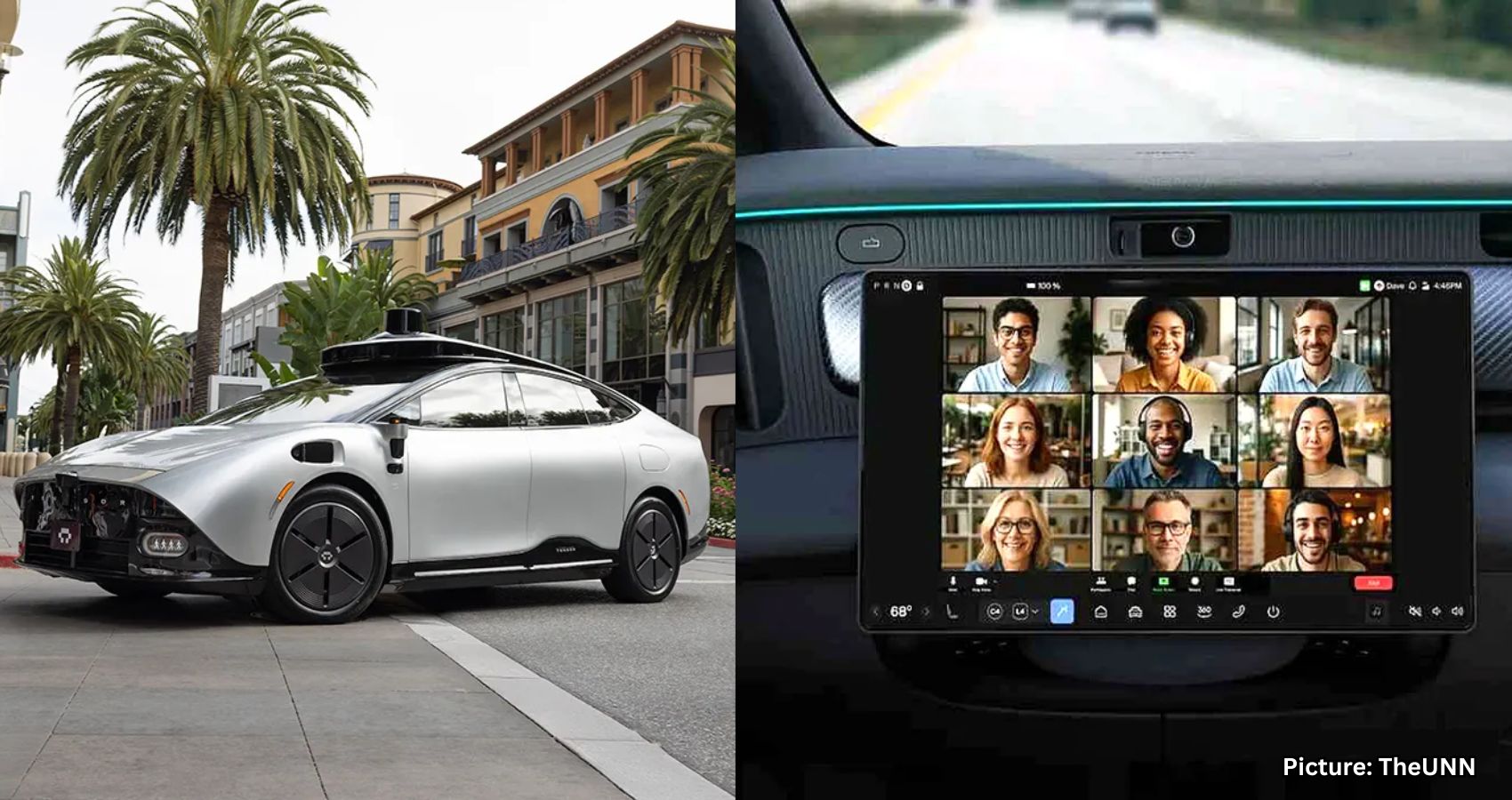Silicon Valley startup Tensor is set to revolutionize personal transportation with the introduction of the world’s first consumer-owned self-driving car, dubbed the personal robocar.
Silicon Valley startup Tensor is making waves in the automotive industry with its ambitious vision for the future of driving. Unlike competitors focused on robotaxi fleets, Tensor aims to empower consumers by introducing the first true self-driving car, which it has branded as the world’s first personal robocar.
This luxury electric vehicle (EV) is designed to offer Level 4 autonomy, allowing passengers to take their eyes off the road while the steering wheel seamlessly folds away into the dashboard. In its place, a large screen transforms the driver’s seat into a comfortable lounge or a mobile office, enhancing the overall travel experience.
Tensor has engineered this vehicle from the ground up, integrating a comprehensive array of technology. The robocar is equipped with 37 cameras, five custom lidars, 11 radars, as well as microphones, ultrasonics, and water detectors. Each sensor is outfitted with cleaning systems to ensure a clear view in all driving conditions.
The vehicle operates on Tensor’s proprietary Foundation Model, a transformer-based artificial intelligence designed to replicate human driving decisions. A key advantage of this system is its ability to function without constant cloud support, which enhances user privacy and eliminates reliance on remote servers.
While many autonomous startups, including Tensor’s previous brand AutoX, began by developing robotaxi fleets, Tensor is taking a more challenging route by focusing on consumer-owned vehicles. This approach requires the robocar to adapt to a variety of driving environments, including highways and urban roads, without a safety net. Although it may not be able to navigate every road from the outset, owners will have the option to take control whenever necessary.
Tensor is committed to ensuring safety through full redundancy in steering, braking, and computing systems. In the event of a system failure, backup systems are designed to take over immediately. The interior of the robocar adds another layer of appeal, featuring retractable pedals and a foldable steering mechanism that creates a living space atmosphere rather than a traditional driver’s seat.
To bring this innovative vehicle to market, Tensor has partnered with VinFast, a Vietnamese automaker. While pricing details remain undisclosed, company executives have indicated that the cost will likely exceed that of other luxury electric vehicles, such as the Lucid Air.
Tensor’s approach represents a significant shift in the automotive landscape. Rather than waiting for ride-hailing services to deploy self-driving fleets, consumers may soon have the opportunity to purchase autonomy directly. If successful, this could not only transform daily commuting but also change the way we perceive car ownership altogether.
With a solid foundation built on its AutoX heritage, Tensor has accumulated years of testing experience, including obtaining permits for driverless operations in California since 2020. Now rebranded, the company is racing to deliver the first consumer-ready robocar by 2026. This venture is a considerable gamble; while luxury buyers may be attracted to the futuristic design and privacy features, widespread acceptance will hinge on trust, safety, and real-world performance.
As the prospect of autonomous driving becomes more tangible, the question remains: would you be willing to relinquish control of your daily commute to a car that promises to drive itself?
Source: Original article

